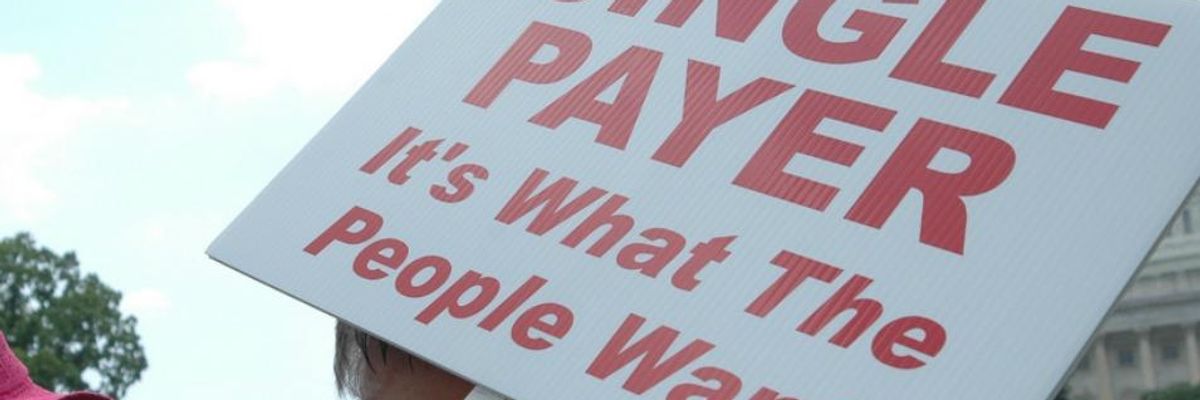Will Colorado be the first state in the nation to successfully implement a single-payer healthcare system?
Voters in the Centennial State will decide next year, the secretary of state's office announced Monday, after confirming that proponents of universal coverage had gathered enough signatures to put the plan--dubbed 'ColoradoCare'--on the 2016 ballot.
"The ballot measure in Colorado, which will now be known as Amendment #69, is about much more than achieving healthcare justice. It is also about citizens coming together and using the democratic process to successfully achieve healthcare justice."
--Donna Smith, Health Care for All Colorado
"Colorado deserves a better option, and now they can vote on one," said state Sen. Irene Aguilar (D-Denver), a physician and lead proponent of the effort. "Health care costs continue to rise every year, hurting Coloradans' chances to get ahead. It's time we get the insurance industry out of the driver's seat and put families in charge of their health care."
According to the Denver Post:
Under the proposed system, people could still choose their medical providers, but the bills would be paid by ColoradoCare instead of private insurance companies.
To pay for state coverage, employers would pay 6.67 percent in payroll taxes and employees would kick in 3.33 percent, for a total of 10 percent of the payroll. Self-employed people would pay 10 percent of their net income. People who qualify for existing federal health programs could continue to receive the same benefits.
As noted by Al Jazeera America, "the campaign is expected to face intense opposition and could make for a heavily funded, highly visible debate over the viability of single-payer health care in a key swing state in the 2016 presidential election."
In fact, Democratic presidential candidate Bernie Sanders has already weighed in on the Colorado fight, telling the Colorado Independent last month: "Colorado could lead the nation in moving toward a system to ensure better health care for more people at less cost. In the richest nation on earth, we should make health care a right for all citizens. No one should go bankrupt or skip getting the care they need because they cannot afford it."
Sanders' home state of Vermont passed a publicly funded healthcare system in 2011. But three years later, the state disappointed local and national single-payer advocates by abandoning the plan, claiming it was too expensive.
Of Colorado's attempt, Forbeswrote that "coming so quickly on the heels of the failed effort in Vermont, it does signal increasing support for the model."
Furthermore, as Aguilar toldYes! Magazine in October, "Vermont's single-payer policy imploded because it was way too expensive for them. It's a small state. But we have the numbers."
Health Care for All Colorado executive director Donna Smith told Common Dreams on Tuesday that what happens in her state could have national implications because "we are not relying on the elected officials to advance universal healthcare."
"This may be a way for other states to learn from our work in Colorado and also pursue single-payer reform at the ballot as a way to overcome some of the political inertia that settles in when so many powerful, monied interests hold court over the legislative process," she explained. "We also have the opportunity to educate Coloradans and inoculate people against the anti-tax, anti-government agenda that seems to always be the battle cry of those who oppose single-payer, universal healthcare, or other social programs."
"The ballot measure in Colorado, which will now be known as Amendment #69, is about much more than achieving healthcare justice," Smith concluded. "It is also about citizens coming together and using the democratic process to successfully achieve healthcare justice."

